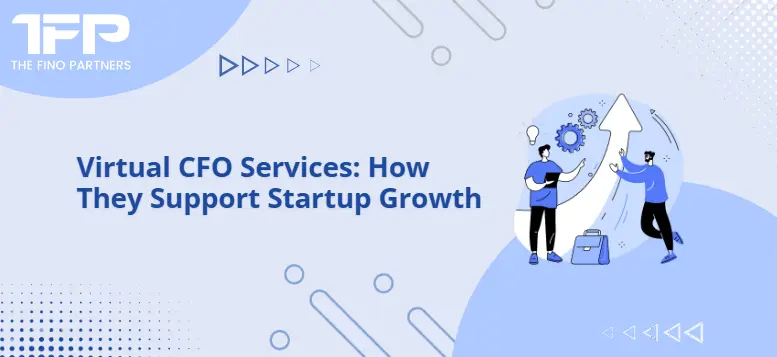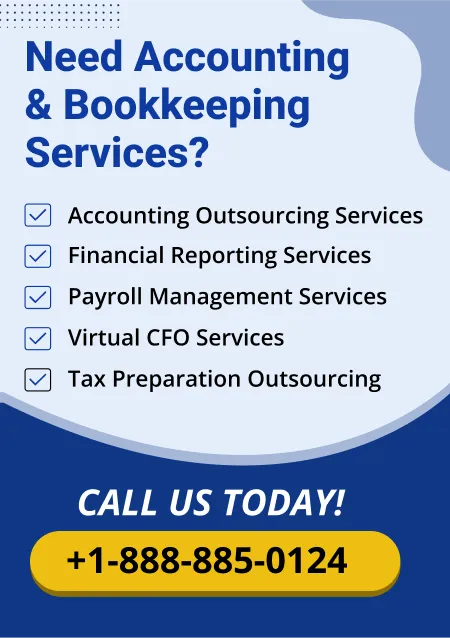Scaling operations can be a daunting task for new startups. The growth path is challenging. It can be done with limited resources, quick decision-making, and economic management on the line. But, one solution that can significantly improve this journey is using virtual CFOs. This unique approach involves hiring a finance expert for a short period who can provide invaluable advice on managing finances and making strategic decisions that can accelerate the company's growth. This article discovers how virtual CFOs can support startup growth. It also explores how they want to expand and succeed in your startups.
Virtual CFO: How it Boosts Startup?
Hiring a virtual CFO can be a game-changer for startups. It's a strategic move that provides high-level economic expertise. It can be done without the long-term commitment of a full-time CFO. CFO consulting and fractional CFOs in a virtual capacity offer flexibility. It also gives strategic oversight to steer a startup toward its growth objectives. They gave services to boost startup growth. It involves:
Services Provided by a Virtual CFO Helps in Startup Growth?
Virtual CFOs provide a variety of services. These services help startups grow. Let’s talk about the importance of each one.
1. Financial Planning
Virtual CFOs for startups don't just crunch numbers; they strategize. Based on thorough data evaluation, they outline a high-performance strategy that balances short-term financial goals with long-term sustainability. This strategic financial planning is a key element in their arsenal, helping startups not just grow but to grow sustainably.
2. Risk Assessment
The reassurance of having a virtual CFO for startups who establish robust internal controls to prevent cyber-attacks and protect data integrity can make you feel more secure and less vulnerable. Presently, companies are adopting digitized working processes. It creates room for cybersecurity and data breach threats. A startup's virtual CFO establishes strong internal controls to prevent cyber-attacks and protect data integrity.
Virtual CFOs scrutinize financial documents to locate red flags like high employee turnover or multiple outstanding debts. They recommend whether or not you should go ahead with the deal.
3. Well-Regulated Auditing
Collaboration between internal auditors and virtual CFOs provides a strong foundation for financial reporting. Regular compliance audits assure virtual CFOs that the organization operates within the boundaries of relevant laws and regulations, instilling confidence in your financial reporting. Internal auditors can also work with virtual CFOs to assess the effectiveness of IT controls and identify vulnerabilities. Following this, finance officers can devise measures to strengthen data security and protect sensitive financial information.
4. MIS Reporting
Organizations use management information system (MIS) reports to review organizational performance. This report includes financial statements, sales charts, an overview of the inventory, market challenges, key challenges, and customer analytics. The data pinpoints improvement areas by comparing target planned vs target achieved KPIs in a specific period. A virtual CFO helps prepare precise, in-depth reports that facilitate confident decision-making to achieve peak performance.
4. Augmented Accounting
A virtual CFO for startups can implement bookkeeping practices. These may be the best. It is for more consistent and clean balance sheets. Another helpful service is building seamless coordination between the AP department and the accounting team.
5. Financial Evaluation
Virtual CFOs evaluate financial documents to calculate critical financial ratios. It involves income statements, tax records, balance sheets, assets, debts, and liabilities. These ratios reveal important insights like:
- Fraction of revenue becomes profit
- Your company’s ability to pay off debts
- How liquidity changes over time, and so on.
- The increasing/decreasing rate of these debts
This information helps to understand your business's profitability, liquidity, and operational expenses. Plus, it allows you to communicate effectively. The communication may be with shareholders and investors.
Choosing the Right Virtual CFO for Your Startup
Focusing on several key factors is essential to select the best fit for your startup.
1. Experience and Track Record
Choose someone with a strong background in your industry or related fields. Their previous success in similar roles can provide valuable insights and strategies tailored to your startup's needs.
2. Cultural Fit and Communication Skills
The virtual CFO must mesh well with your team and communicate effectively with all stakeholders. It includes explaining complex economic concepts in simple terms and being able to listen and adapt to the startup's culture. A good cultural fit ensures smoother integration and teamwork.
3. Cost Considerations
Understand the costs involved in hiring a virtual CFO. Typically, these costs are flexible and can be much lower than bringing on a full-time CFO, especially considering benefits and long-term commitments. This flexibility allows startups to manage their finances more effectively while gaining high-level economic expertise.
Also Read | Virtual CFO Services: Customizing Financial Strategies for Startups
Winding Up Note
Recalling the potential impact of virtual CFOs, it’s clear that they can be a catalyst for growth, offering strategic economic management and planning that aligns with your startup’s goals. If you want to accelerate your startup's growth trajectory, consider the tailored expertise that CFO consulting and CFO can provide. Contact Fino Partners for a partner who can guide you through your economic journey, ensuring your startup survives and thrives.
Let's see how a virtual CFO can help you overcome your business challenges. You can also check how virtual CFOs partner to help you achieve your organization's potential. Contact Fino Partners today to speak with one of our experienced outsourced CFOs.



























